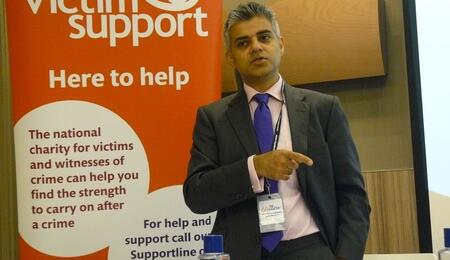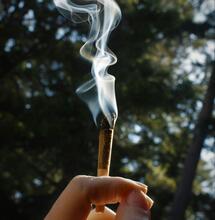London Mayor to Initiate Special Commission to Assess Benefits of Legal Weed

Sadiq Khan, who is set for re-election on May 6 as a Mayor of London, has said he will set up an independent drugs commission in the UK capital should he resume time in office.
Khan is to initiate a review examining the feasibility of cannabis decriminalisation as part of a new approach to tackling drug-related crime. That would be done with the launch of an independent London drugs commission to examine the potential health, economic and criminal justice benefits of making cannabis legal—otherwise, a class-B drug per UK classification system. The mayor believes there is increasing support for making a more relaxed approach to decriminalisation, citing polls showing over half of the UK and nearly two-thirds of those in the capital - support the legalisation of recreational use of cannabis, the Guardian has reported. According to one of those surveys, conducted in 2019, 65% of Londoners back the legalisation and regulation of marijuana, while only 19% opposed the idea. Across the UK, those numbers stand 47% in favour vs 30% against. “It will be for the commission to look at the evidence in the round, but nothing is off the table in the context of what is best for public health and keeping Londoners safe,” said a source close to the mayor. Khan's proposal to set up a London drugs commission is expected to be part of his upcoming mayoral election manifesto. As the Guardian reports, he believes that too many young people are being charged for the use of drugs. A commission would give a fresh perspective on how to counter the illegal drugs trade, which affects the health and livelihood of Londoners. About 41, 900 people across England and Wales were charged with drug-related offences last year. According to the national Institute of Economic Affairs, having a commercialised cannabis market in place "which capped THC levels at 15 per cent would virtually eradicate the black market, but some unlicensed cannabis would remain." As estimates suggest, legalising and regulating cannabis sales would generate at least £1 bn in taxes for the Treasure. It would also save the NHS and other public services at least £300 million every year. The London drug commission would include experts from different spheres of society such as the criminal justice system, public health experts, politicians and academics. One of the body's tasks would be to look for how other countries have handled drug use and addiction issues, including examples like Portugal, where the use and possession of drugs have been made legal for 20 years now. Since Portugal had legalised drugs back in 2001, the country has seen a radical drop not only in drug overdose but also in drug-related crimes and HIV infections. Other countries where cannabis has been made legal such as Canada, Uruguay as well as those U.S. states where adult use is permitted, will also be subject of research. Should the U.K. advances its legislation for the adult use of cannabis, it will join a number of other European countries that already have a more relaxed stance on the use of the soft drug. Beyond Portugal, cannabis is allowed for private use in Spain, while Dutch coffee shops have been selling marijuana for decades. Although Khan does not have the powers to introduce new laws, he believes any conclusion that the working commission generates would act as a significant boost on the city's and the country's policy on cannabis.
What's the status of cannabis in the United Kingdom?
For now, recreational cannabis, unfortunately, remains illegal in the U.K. even though the country is one of the world's largest exporters of legal cannabis. The soft drug has been restricted on the island nation since 1928, while it was officially classified and made more rigid to access in 1971. As of more recently, authorities have been playing back and forth with the classification issue. Cannabis was made a Class C drug back in 2004, which meant less severe penalties if caught possessing it, but in 2009 it was rescheduled as a Class B drug again. Medical cannabis, when prescribed by a registered specialist doctor, has been made legal across Britain in late 2018. The supply of some cannabis drugs was disrupted with the onset of Brexit at the start of 2021, with families complaining critical medicines for the treatment of severe conditions such as rare forms of epilepsy were out of supply on the island and could not be timely delivered from the Netherlands to which some of these drugs are exclusive. The oldest evidence of the use of cannabis on the island goes back to a Viking settlement in the 10th-century. It's assumed that even Queen Victoria has used cannabis tincture during the 19th-century to treat menstrual cramps. Cover photo: Sadiq Khan back in 2011. Mr Khan has been serving as Mayor of London since 2016. Photo credit: Policy Exchange, CC BY 2.0



